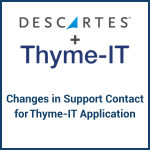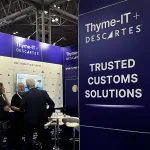Common User Charge (CUC) Policy
On 30 April 2024 the UK Government is introducing new sanitary and phytosanitary (SPS) import controls as part of the new Border Target Operating Model (BTOM).
These controls will protect the UK’s food supply chain, our food and farming industries, and our natural environment from biosecurity risks including the costly outbreaks of diseases.
The charge will be applied on sanitary and phytosanitary (SPS) goods subject to BCP checks from 30 April.
❑ The charge is for imports entering Great Britain through the Port of Dover or Eurotunnel which are eligible for checks at government-run Border Control Post (BCP) facilities.
❑ The Common User Charge is designed to recover the full costs of operating the planned government-run Border Control Post facilities serving the Port of Dover and Eurotunnel. The charge will not apply to privately-run ports – it will be up to commercial ports to determine their own charging structure and rates.
❑ The charge is a flat rate which will spread the cost and keep rates as low as possible for all importers. It will apply whether or not the import is selected for a physical check at planned government-run BCP facilities.
Common User Charge – What is in scope?
❑ Low, Medium and High-risk products of animal origin (POAO)
❑ High-risk food and feed of not of animal origin (HRFNAO)
❑ Medium and High-risk plants and plant products (P&PP)
❑ Low, Medium and High-risk products of animal origin (POAO) in transits entering and exiting Great Britain.
❑ Defra Accredited Trusted Trader Scheme (ATTS) pilot participants with goods which are eligible for checks at the planned government-run Border Control Post facilities.
Common User Charge – What is out of scope?
Low-risk plant and plant products (P&PP) which are not pre-notified on the Import of products , animals and food and feed systems (IPAFFS) – charges may apply if pre-notified.
❑ Plants and plant products which will be checked at designated inland Control Points.
❑ Plants and plant products using Great Britain as a landbridge.
❑ Participants of the Authorised Operator Status (AOS) pilot for plants and plant products will not be required to pay the Common User Charge where checks take place at designated inland Control Points.
❑ Goods for personal use arriving via Eurostar, Eurotunnel or Dover Ferry passenger services.
❑ Live animal rates will be developed separately and will apply once they are subject to inspections at the planned government-run Border Control Post facilities in the future
Other Charges
The Common User Charge is a separate charge from inspection fees at planned government-run Border Control Post facilities:
▪ Public Health Authority (PHA) inspection fees (POAO) will be applied to each CHED and may vary across different PHAs.
▪ Animal and Plant Health Authority (APHA) inspection fees (P&PP) will be applied to categories of commodities within a Common Health Entry Document,
with different levels of charge for each category.
Common User Charge – How the Charge Will be Calculated
The Common User Charge will apply to each eligible commodity line in a Common Health Entry Document (CHED).
- A CHED is an import notification you submit on IPAFFS to notify authorities in Great Britain about your import.
- A commodity line is a quantity of goods entered as a separate line item in a CHED
❑ The maximum charge for one CHED will be limited to 5 commodity lines, even if there are more than 5 commodity lines present in the CHED.
❑ The charge will apply to separate commodity lines even if they share the same commodity code.
❑ Changes or cancellations can be made to CHED notifications up to 2 hours before the entry time stated on the notification. At this point the notification will be locked and the information will be used to calculate the charge
Review of Common User Charge
❑ During the first year of introduction, import volumes and issues affecting Common User Charge payment compliance will be monitored so businesses who must pay the charge can be guided by appropriate advice and support.
❑ The impact of the Common User Charge on businesses of all sizes – particularly SMEs – will be kept under quarterly reviews, with rates reviewed and updated annually.
Who Pays the Common User Charge
❑The person or organisation submitting an import notification through the Import of Products, Animals, Food and Feed System (IPAFFS) will be responsible for:
- the consignment from the point of notification to the point the consignment reaches the point of entry at either the Port of Diver or Eurotunnel in Great Britain
- payment of the Common User Charge (unless the notifier is operating under Delegation of Authority in which case the importer is responsible for payment and not the notifier).
❑ The first invoices will be issued digitally no sooner than 12 weeks after 30 April 2024 to support business readiness.
❑ After this, traders will be invoiced monthly in arrears.
❑ Information and guidance about the process and how to pay the charge is available on GOV.UK




